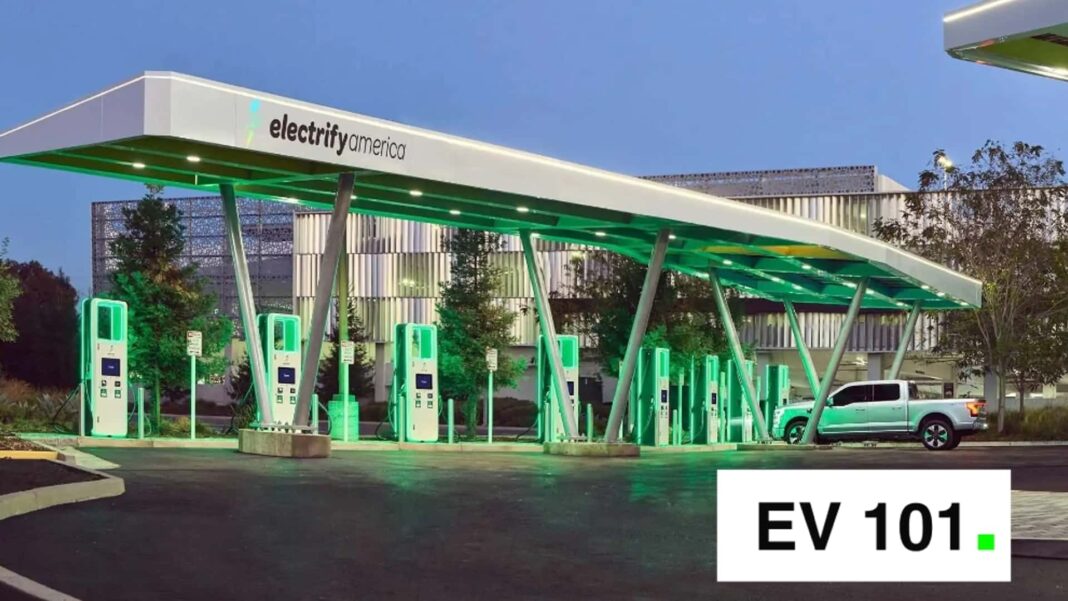First-time EV owners face an immediate concern: how, when and where to charge their vehicles. The eventual answer—for many—will be installing a Level 2 charger at home. But even those fortunate single-family-home-owning suburbanites will venture out and rely on public charging from time to time.
EV charging infrastructure is improving. The number of public EV charging stalls in the U.S. is around 200,000. But finding an EV charger — particularly an operational, available and fast one — still requires far more prep and research than filling up a combustion vehicle. You can’t just hit the interstate and expect 350 kW DC fast charger options at every exit.
What’s the best way to find an EV charger? It varies depending on the owner, the EV and the circumstances. Most owners will have to rely on a combination of the vehicle itself and an assortment of smartphone apps.
Finding an EV charger with the vehicle
Car manufacturers anticipated that EV owners would need to find charging. Almost every new EV should have basic functionality to search for nearby chargers and navigate to them. Many have capabilities that go beyond that. My 2024 Hyundai Ioniq 5 recognizes it is heading to a charger in the navigation system and automatically preconditions the battery for optimal charging speed.
Perhaps the main argument for GM EVs with Google built-in abandoning smartphone projection is the car’s ability to integrate its charging status with its native Google Maps navigation. This ability allows the owner to automatically incorporate a charging stop (or multiple stops) into the route navigation.
Tesla made finding an EV charger particularly easy for its owners. The driver can search for nearby Tesla stations on the infotainment screen. Tesla’s on-board navigation system automatically factors in charges on Tesla’s Supercharger network spread along major highways.
The Best Apps for Finding an EV Charger
The best starting point app for most EV owners to find a charger is PlugShare. It incorporates nearly every proprietary network into one database. PlugShare lets you easily search for chargers with various useful filters (charging speed, lodging, nearby amenities, plug type your vehicle has). It also enables you to plan trips with charging stops. PlugShare provides real-time data about stall availability. Users can add helpful context about how to find the charger (and whether it has been working recently. PlugShare can also submit payments at some chargers. ChargeHub provides a similar service, but its interface is not quite feature-rich or user-friendly.
If you’re planning a straightforward journey, however, PlugShare may be overkill. Proprietary apps for charging networks — you’ll likely need a few of them on your phone anyway to submit payments — can be a great way to quickly find the charger you want when planning. You can start simple and work toward a more exhaustive search if needed.
For example, my Hyundai and Kia EVs came with complimentary charging plans from Electrify America. Electrify America’s network is almost entirely DC fast chargers — optimal for getting back on the road quickly. Usually, I look at Electrify America’s app first. It provides real-time availability data and can send directions with a click to Google Maps or Apple Maps. I expand the search with other apps if there is no viable EA option.


